Pearls Before Swine was an American psychedelic folk band formed by Tom Rapp in 1965 in Eau Gallie, which is now part of Melbourne, Florida. They released six albums between 1967 and 1971, before Rapp launched a solo career.

Beautiful Loser is the eighth studio album by American rock artist Bob Seger, released in 1975. This album marked Seger's return to Capitol Records after a four-year split. His previous record with Capitol was Brand New Morning in 1971.

Thomas Dale Rapp was an American singer and songwriter who led Pearls Before Swine, an influential psychedelic folk rock group of the late 1960s and early 1970s. Described as having "a slight lisp, gentle voice and apocalyptic vision", he also released four albums under his own name. He later practiced as a lawyer after graduating from University of Pennsylvania Law School in 1984.
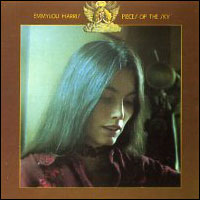
Pieces of the Sky is the second studio album and major-label debut by American country music artist Emmylou Harris, released on February 7, 1975, through Reprise Records.

Elite Hotel is the third studio album by American country music artist Emmylou Harris, released in 1975. Elite Hotel was Harris' second album to be released in 1975, preceded by the widely acclaimed Pieces of the Sky. Elite Hotel surpassed it on the Billboard charts, becoming Harris' first number one country album. The album yielded two number one country singles: "Together Again" and Harris' version of the Patsy Cline hit "Sweet Dreams". The song "One of These Days" made it to the number three spot. A performance of the Beatles' "Here, There and Everywhere" entered the pop charts at number 65. Harris' eclectic musical tastes were reflected in her choice of material by Hank Williams, The Beatles, Gram Parsons and Buck Owens. Harris' vocals on the album earned her the Grammy Award for Best Country Vocal Performance, Female.
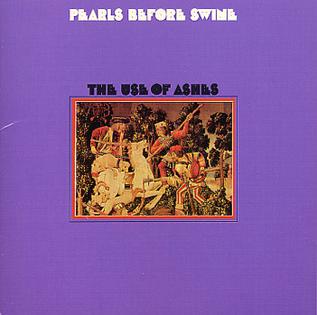
The Use of Ashes was the fourth album made by American psychedelic folk group Pearls Before Swine, and the second on Reprise Records after their move from ESP-Disk.
Stuart Martin Scharf was an American composer, guitarist, and record producer.
Amos Garrett is an American-Canadian blues and blues-rock musician, guitarist, singer, composer, and musical arranger. He has written instructional books about music and guitar. Garrett holds dual citizenship and was raised in Toronto and Montreal. He is best known for his guitar solos on Maria Muldaur's recording "Midnight at the Oasis", and on Paul Butterfield's Better Days recording of "Please Send Me Someone to Love." He has written books about music, such as "Amos Garrett—Stringbending: A Master Class".
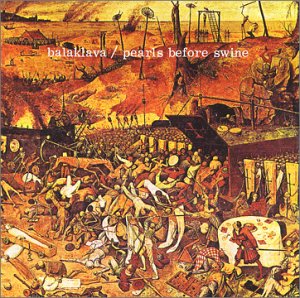
Balaklava was the second album recorded and released by psychedelic folk group Pearls Before Swine in 1968.
Rhinoceros was an American rock band established in 1967 through auditions conducted by Elektra Records, rather than organic formation by musicians. The band, while well respected in many circles, did not live up to the record label's expectations. It was also poorly received by fans, producing a slow selling debut album and two even less successful LPs before breaking up. One reviewer commented, "Despite the fact that the band could not live up to the expectations that were raised by Elektra Records' publicity machine, Rhinoceros' contributions to rock still deserve more credit than subsequent rock histories give it."

One Nation Underground is the debut album by American psychedelic folk group Pearls Before Swine. It was released on the ESP-Disk label in July 1967.

These Things Too is the third album by American psychedelic folk group Pearls Before Swine, and their first for Reprise Records. It was released in 1969.

City of Gold was the fifth album made by American psychedelic folk group Pearls Before Swine, and their third on Reprise Records. It was released in 1971.

Familiar Songs is an album released on Reprise Records in 1972 by American singer-songwriter Tom Rapp, the leader of folk-rock group Pearls Before Swine. It was presented as his first solo album, although several previous albums credited to Pearls Before Swine had actually been recorded by Rapp with session musicians, rather than by a working group. The album is also sometimes known simply as Tom Rapp, because its title does not appear on the front sleeve.

Stardancer was the second solo album credited to American singer-songwriter Tom Rapp, the leader of folk-rock group Pearls Before Swine, and his first for Blue Thumb Records. It was recorded and first released in 1972.
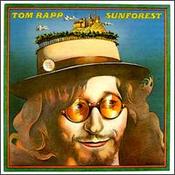
Sunforest was the ninth album recorded by American singer-songwriter Tom Rapp, his second for Blue Thumb Records, and his final record before his lengthy retirement from the music industry after the mid-1970s.

A Journal of the Plague Year is an album released on CD in 1999 by American singer-songwriter Tom Rapp, leader of the 1960s/70s psychedelic folk group Pearls Before Swine. It was his first new album for 26 years, and included collaborations with Damon and Naomi and Nick Saloman.

Miles Davis & Gil Evans: The Complete Columbia Studio Recordings is a box set of music by jazz musicians Miles Davis and Gil Evans originally released on CD in 1996 and remastered and re-released in 2004. It collects work from 1957 through 1968 at Columbia Records recording studios.
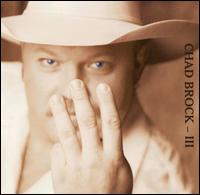
III is the third and final studio album released by country music artist Chad Brock. It features the single "Tell Me How". The only single from the album, the song failed to make the top 40 on the US country chart; Brock exited Warner Bros' roster by the end of 2001. Three of Brock's biggest hits — "Yes!", "Ordinary Life" and "Lightning Does the Work", the latter two from his 1998 debut and the former from 2000's Yes! — are included as bonus tracks.















